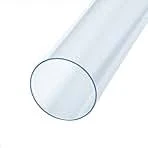ታኅሣ . 07, 2024 05:17 Back to list
hdpe pipe for drip irrigation
Understanding HDPE Pipe for Drip Irrigation
Drip irrigation has emerged as one of the most efficient watering systems for farms, gardens, and greenhouses worldwide. At the heart of this technology lies the choice of materials used for the piping system, with High-Density Polyethylene (HDPE) piping proving to be an exceptional choice for drip irrigation applications. This article delves into the characteristics, advantages, and applications of HDPE pipe in the realm of drip irrigation.
What is HDPE?
High-Density Polyethylene (HDPE) is a thermoplastic polymer made from petroleum. Known for its high strength-to-density ratio, HDPE is commonly used in various applications, including piping systems for water and gas distribution, packaging, and geomembranes. Its properties make it an ideal material for drip irrigation systems, which require durability, flexibility, and resistance to various environmental factors.
Key Characteristics of HDPE Pipe
1. Durability HDPE pipes are resistant to corrosion, chemicals, and biological growth, allowing them to stand up against even the most demanding soil and water conditions. This durability ensures a long-lasting irrigation solution that minimizes the need for replacements or repairs.
2. Flexibility Compared to traditional materials like PVC, HDPE pipes are more flexible, allowing for easy installation around obstacles in the field and reducing the possibility of cracking under stress.
3. Lightweight HDPE pipes are significantly lighter than their PVC counterparts, making transportation and installation easier and less costly. This is particularly advantageous for large agricultural projects where labor costs can add up quickly.
4. Low Friction Loss The smooth interior surface of HDPE pipes reduces friction loss, allowing for efficient water flow. This characteristic is especially beneficial in drip irrigation, where maintaining a consistent and efficient delivery of water to the plants is crucial.
5. Environmental Impact HDPE is a recyclable material and has a lower environmental impact compared to other types of pipes. As sustainability becomes increasingly important in agriculture, using HDPE contributes to eco-friendliness.
hdpe pipe for drip irrigation

Advantages of Using HDPE Pipe in Drip Irrigation
1. Efficient Water Use Drip irrigation systems deliver water directly to the roots of plants, minimizing evaporation and runoff. When combined with HDPE piping, this system allows for effective water use in drought-prone areas, helping to conserve one of our most precious resources.
2. Cost-Effectiveness Although the initial investment for drip irrigation systems with HDPE pipes can be higher, the long-term savings in water usage, fertilizers, and labor costs make it a financially sound choice for farmers.
3. Reduced Soil Erosion By controlling the amount of water delivered to the plants, drip irrigation using HDPE pipes minimizes soil erosion and runoff, helping to maintain soil integrity and health.
4. Versatility HDPE pipes are available in various sizes and configurations, making them suitable for a wide range of applications, from small home gardens to large-scale agricultural operations.
Applications of HDPE Pipe in Drip Irrigation
HDPE pipes are widely used across different agricultural sectors, including
- Crop Farming Essential for growing a variety of crops, from vegetables to fruits, by providing a steady supply of water. - Greenhouses Ensures that plants receive the necessary moisture without the risks associated with overhead irrigation systems. - Orchards Ideal for delivering precise amounts of water to trees, promoting healthy root development and fruit production.
Conclusion
In conclusion, HDPE pipes play a crucial role in the efficiency and effectiveness of drip irrigation systems. Their durability, flexibility, and environmental benefits make them an excellent choice for those looking to enhance water usage in agricultural practices. By investing in HDPE piping, farmers can not only improve their yields but also contribute to sustainable water management in an increasingly resource-challenged world. The future of agriculture undoubtedly lies in the smart use of technology, and HDPE piping is leading the way in transforming how we manage and utilize water in farming.
-
HDPE Natural Sheet: Durable, Food-Grade & Versatile Plastic Solutions
NewsAug.27,2025
-
Durable Glossy PVC Rigid Sheet | Premium High-Shine Panels
NewsAug.26,2025
-
Durable PP Rigid Sheet: Lightweight, Chemical Resistant Solutions
NewsAug.21,2025
-
PVC Grey Sheet for Extraction: Chemical Resistant & Durable
NewsAug.19,2025
-
Durable PVC Pipe Fittings for Plumbing & Irrigation Needs
NewsAug.18,2025
-
HDPE Steel Belt Reinforced Spiral Corrugated Pipe | High Strength
NewsAug.17,2025

